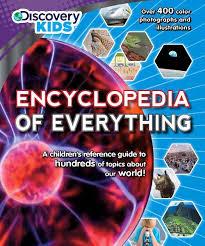| Beginning 1-3 min
3-7 min
Middle 7-10 min
10-37 min: 2 min – group division
2 min – instructions
13 min – group work
6 min for each groups presentation
3 min – video and self-evaluation
End 37-40 min
Home task | Greetings: W Teacher greets learners and congratulates the class on the beginning of the 3rd term. Then, teacher hands out stickers and asks learners to write a compliment to a peer. Learners write wishes and nice words to each other, so learners collaborate and create a friendly atmosphere.
Lead-in: P, W Learners look at the slide and in pairs try to solve the rebus in order to guess the topic of the lesson. Learners will solve the rebus and find out the theme of the lesson. Then teacher asks learners what they are going to learn today. Learners will guess that they will read and discuss different books, learn about famous authors. Then teacher and learners set the lesson objectives together.
Fiction or Non-fiction? W Teacher displays pictures of fiction and non-fiction books / journals of Kazakh, Russian and English literature. Learners should look at the pictures and analyse the difference between them. This activity is aimed at developing learners’ critical thinking skills since learners are expected to analyse the pictures and understand which books refer to fiction and non-fiction literature. Learners should say that these are different books, but the role of teacher is to encourage them to understand what fiction and non-fiction literature is. At this stage learners might not know the terms “fiction” and “non-fiction”.
Group project “You are the Teacher”, G, f When learners have guessed the difference between the suggested books, divide the class into 2 groups. Teacher hands out parts of puzzles to learners. Learners walk around the classroom and collect puzzle pieces. When the puzzles are ready, two groups are formed (Teacher should cut the pictures to make puzzles beforehand.) 
Group A focuses on fiction literature and should make a presentation to explain it to their classmates. Group B investigates non-fiction literature. Differentiation Group A (less able learners) are given key words with translation to use in their presentation Group B (more able learners) are given key words with definitions. Before learners start working in groups, teacher reminds that they should divide responsibilities in a group (speakers 1-3, art designer, writer, time keeper)
Teacher gives clear instruction and sets time: 5 minutes to study what fiction or non-fiction literature is, 5 minutes to create a poster, 3 minutes to prepare speech.
Before learners’ presentation, teacher introduces the assessment criteria: A detailed explanation of fiction or non-fiction genre with examples of Kazakh, Russian and English literature Grammatical Accuracy (Present Simple) Clear poster All learners contribute to group work Fluency and right pronunciation While one group is presenting, the other one is to comment and ask questions. Then learners watch a video about fiction and non-fiction literature and reflect on own presentation.
Reflection P Learners create a cinquain poem with the word “reading” or “book” or any word related to the topic of the lesson If necessary, teacher explains to learners the structure of a cinquain and gives a sample
Learners need to bring a favourite book in Kazakh, Russian or English and be ready to describe it. | Stickers
PPP, slides 1-2
PPP, slide 3
PPP, slide 4
laptops, internet access, posters, markers
Pictures for puzzle group division
Appendix 1
PPP, slide 5
PPP, slide 6
Appendix 2
https://www.youtube.com/watch?v=7RRPqkPnRl8 - Video about the differences between fiction and non-fiction literature
PPP, slides 7-8
|
| Differentiation – how do you plan to give more support? How do you plan to challenge the more able learners? . For less able learners- the key words with translation related to fiction literature For less able learners- the key words with definitions related to non-fiction literature
| Assessment – how are you planning to check learners’ learning? Assessment criteria will be presented to the learners before starting the group activity Observe learners when presenting their group projects. Did the group dynamics work? Did each learner contribute to the presentation? If not, why not? (e.g. didn’t understand what to do; not so confident speaking English; not interested in topic; other) Monitor learners to check they can pick up specific details when listening about the difference between fiction and non-fiction literature | Critical thinking Analyzing the pictures to solve the rebus and guess the topic of the lesson Searching for information, analyzing it and preparing own presentation about fiction and non-fiction literature Analyzing the difference between fiction and non-fiction literature Creating c cinquain poem with one word related to the topic of the lesson |
| Reflection Were the lesson objectives/learning objectives realistic? Did all learners achieve the LO? If not, why? Did my planned differentiation work well? Did I stick to timings? What changes did I make from my plan and why?
The lesson went well as the learners managed guessing the topic of the lesson and were actively involved in class discussion and group activity. Most of learners contributed much to group work and acted as teachers. Moreover, learners explained features of fiction and non-fiction literature well. Differentiation of the group work was appropriate since less able learners need extra support due to lack of vocabulary. The group activity was effective as it was aimed at developing learners’ critical thinking and self-learning skills. However, learners could not stick to timings and group work went longer than expected. Next time, I will plan group work better taking into account learners’ skills (7 graders need more time while preparing a group presentation and they spend more time on making their posters nice) |


















